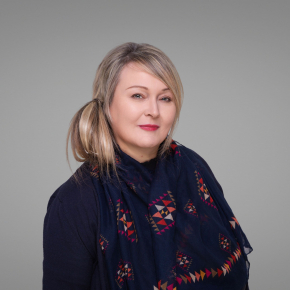Rachel Matthews – Body+Soul
Author, University lecturer, Student Welfare Co-Ordinator
Why it’s time to retire the term ‘middle-aged’.
It’s well overdue.
The culturally loaded term has become more irrelevant than ever, argues Dr Rachel Matthews, as hitting midlife no longer means slowing down.
Who is middle-aged these days? I hear anyone from their mid-30s to their 50s labelling themselves with this term. And I have a problem with it. Here’s why.
Language is key. The term “middle-aged” implies a fixed set of expectations and limitations based solely on chronological age. To be in the ‘middle’ of something suggests a malaise. Lack of direction. But this is far from the truth of the middle-aged woman. The truth is, women in midlife and beyond, have diverse experiences, backgrounds, and aspirations and they’re busier than ever.
With women living longer than ever before, the term middle-aged has become a generalised catch-all for anyone over 40, as if that number is a cliff. But that cliff is just the beginning for many women – they live longer than men and travel more. The biggest group of world explorers are single women over 50.
When you think of a middle-aged woman, what notions spring to mind? The witch? The hag? The nagging older lady? The middle-aged frump? By contract women who go under the knife and inject to feel younger, are predatory cougars and mutton dressed as lambs. They’re the ‘embarrassing mums’ doing the Nutbush at someone’s 21st or laughing too loudly in public.
These notions stem from centuries ago, during the Middle Ages when women on the fringes of society, the outcasts and unsuitable members of society were killed in the witch hunts of that period. More than 60,000 women were burnt, drowned, tortured, strangled or stoned to death because they were single, older, childless and feared. They were the redheads, ‘unattractive spinsters’ or disabled, supposedly out to seduce and ruin menfolk. Some historians believe that these ‘witch-hunts’ in Europe were a way of systemically cleansing the female gender.
We may no longer be burnt at the stake in Australia, as was one of the murderous methods in the Middle Ages, but the labels for women over a certain age remain. In 2011, shockingly the then opposition leader Tony Abbott appeared in a crowd of carbon tax protestors with the sign ‘Ditch the Witch’ behind him. The ‘witch’ was our then Prime Minister Julia Gillard. Hilary Clinton was also cast as a witch during the 2016 US presidential campaign.
The term ‘witch’ typecasts women who are middle-aged. And these terms, if believed, can reduce our sense of worth in the world.
In truth, being middle-aged is a New Age of contributing and exploring. And at the same time, it’s a liberating part of the map of your life and experiences when we can stop agonising over how we look, for not necessarily having that Kardashian derriere. Our experiences at any age are what fuels the love, wisdom and adventures that lie ahead.
And what comes after being middle-aged? Many of us think of the time that follows midlife as a slow downhill run. But in history, the period after the Middle Ages is known as the Early Modern Era. Isn’t that more uplifting?
Some of the most impactful, beautiful and inspiring women I know, are aged in their 60s and beyond. My cousin G is in her 70s and treks through Nepal yearly. Earlier this year she walked across Spain, rode a bike through France and travelled by boat through European canals. If this is what comes after middle age, then sign me up.
In the meantime, let’s drop the term middle-aged, and claim the number of our years with intention and determination. The number of birthday candles illuminating and celebrating the years of your life.
Dr Rachel Matthews is a Melbourne author and released her third novel in 2023, Never Look Desperate, which explores the wild frontier of Tinder after 40.
